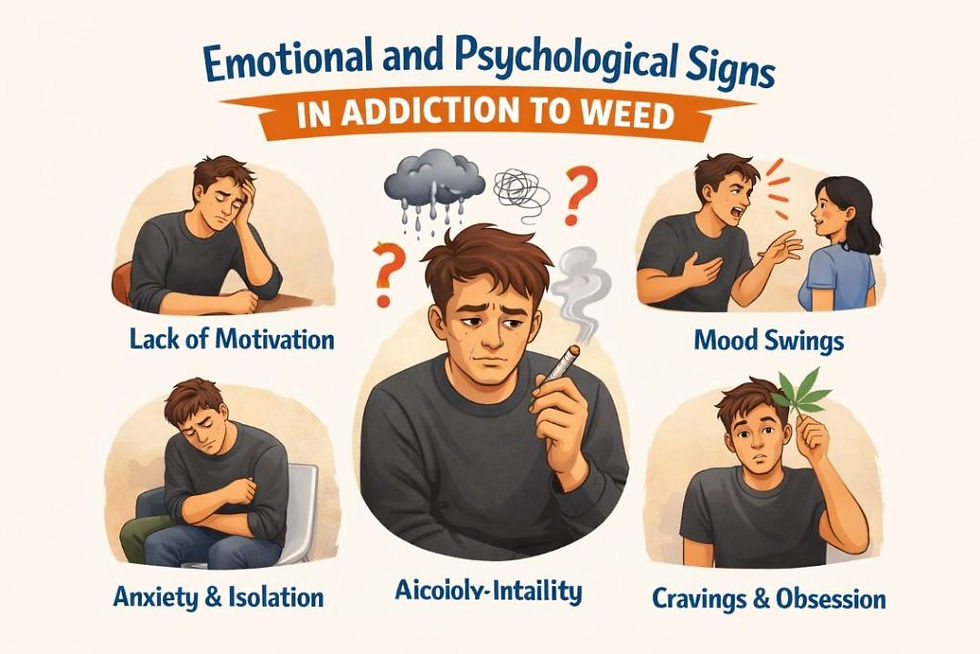Understanding Psychosis: How Long It Lasts & When to Seek Help
- Felicia Parris

- Jul 14, 2025
- 3 min read
How Long Does Psychosis Last? Understanding the Duration and Recovery Process
Psychosis is a serious mental health condition that affects how a person perceives reality. It can involve hallucinations, delusions, disorganized thinking, and impaired judgment. While experiencing psychosis can be frightening for both the individual and their loved ones, understanding how long psychosis lasts can help guide expectations and support the recovery process.
At Deland Treatment Solutions, we specialize in treating mental health disorders, including psychosis, with compassion and evidence-based care. In this blog, we’ll explore the typical duration of psychosis, what affects its length, and how treatment can promote recovery.

What is Psychosis?
Psychosis is not a standalone disorder, but rather a symptom of various mental illnesses, such as schizophrenia, bipolar disorder, and severe depression. It may also be triggered by substance use, brain injury, or extreme stress. When someone is in a psychotic state, they lose touch with reality, often hearing or seeing things that aren’t there or believing things that are untrue.
How Long Does Psychosis Typically Last?
The duration of psychosis varies depending on the underlying cause, the individual’s mental health history, and how quickly they receive treatment. In general, psychosis can last:
Acute psychotic episodes: A few days to several weeks
First-episode psychosis (FEP): Can last several weeks to months if untreated
Chronic psychosis (e.g., schizophrenia): Ongoing symptoms that may persist for life if not managed properly
Substance-induced psychosis: Usually resolves within a few hours to days after the drug leaves the system, but some symptoms may linger
Early detection and treatment are crucial. The sooner treatment begins, the better the chances of reducing the duration and severity of symptoms.
What Factors Affect the Duration of Psychosis?
Several factors influence how long psychosis lasts:
Cause of Psychosis: Psychosis caused by a treatable condition or substance use may resolve more quickly than psychosis caused by chronic mental illness.
Delay in Treatment:The longer someone goes without treatment, the longer psychotic symptoms may persist. Early intervention is key.
Type of Treatment Received: A combination of antipsychotic medication, psychotherapy, and supportive care typically leads to faster recovery.
Individual Response to Treatment: People respond differently to treatment based on their biology, mental health history, and environment.
Co-occurring Conditions: The presence of other mental health issues, such as anxiety or substance abuse, can complicate and extend the course of psychosis.
Treatment Options for Psychosis
At Deland Treatment Solutions, we offer a comprehensive treatment approach to help individuals recover from psychosis. Our treatment plans may include:
Medication Management: Antipsychotic medications help reduce hallucinations and delusions.
Individual and Group Therapy: Cognitive Behavioral Therapy (CBT) is often used to help manage thought patterns.
Dual Diagnosis Support: For those with substance use disorders and psychosis.
Family Education and Support: Involving family members can help create a stronger support system.
Aftercare Planning: Ensuring continued care to prevent relapse.
Our experienced team creates personalized treatment plans designed to meet the unique needs of each individual, helping them regain stability and live meaningful lives.
How Long is the Recovery from Psychosis?
While the acute phase of psychosis may last only a few weeks, full recovery often takes several months or even longer. Recovery is not just about ending the psychotic episode. It involves restoring mental, emotional, and social well-being. Some individuals may experience lasting effects, while others recover fully with minimal ongoing treatment.
Relapse is possible, especially without consistent care. That’s why long-term support and monitoring are essential components of recovery.
When to Seek Help
If you or someone you love is showing signs of psychosis, such as extreme paranoia, hallucinations, or disorganized speech, seek professional help immediately. Early intervention greatly improves the chances of recovery and reduces the risk of long-term complications.
DeLand Treatment Solutions is here to help individuals navigate the challenges of psychosis with expert care and support. If you’re asking, “How long does psychosis last?” remember that with timely treatment, healing is possible.
📞 Contact us at (386) 866-8689 today to learn more about our psychosis treatment programs or to schedule a confidential consultation.



Comments